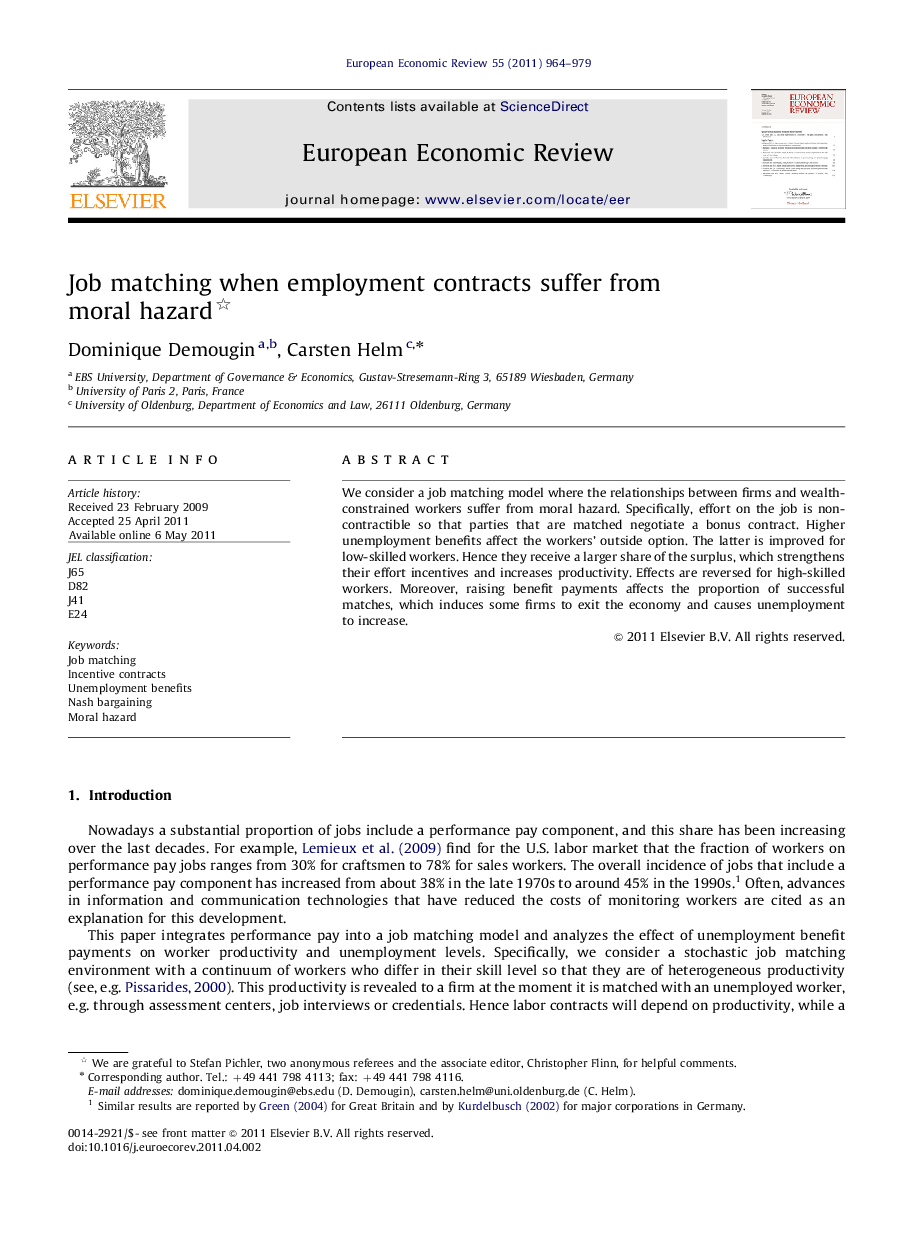| Article ID | Journal | Published Year | Pages | File Type |
|---|---|---|---|---|
| 5067094 | European Economic Review | 2011 | 16 Pages |
Abstract
We consider a job matching model where the relationships between firms and wealth-constrained workers suffer from moral hazard. Specifically, effort on the job is non-contractible so that parties that are matched negotiate a bonus contract. Higher unemployment benefits affect the workers' outside option. The latter is improved for low-skilled workers. Hence they receive a larger share of the surplus, which strengthens their effort incentives and increases productivity. Effects are reversed for high-skilled workers. Moreover, raising benefit payments affects the proportion of successful matches, which induces some firms to exit the economy and causes unemployment to increase.
Keywords
Related Topics
Social Sciences and Humanities
Economics, Econometrics and Finance
Economics and Econometrics
Authors
Dominique Demougin, Carsten Helm,
